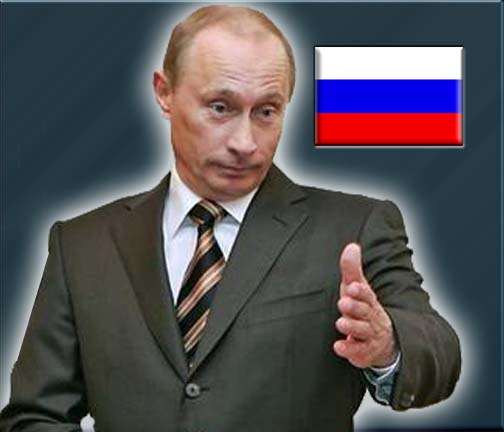Putin prods EU to lend "a lousy billion" to Ukraine for gas payments
 Moscow/Kiev - Winter is fast approaching, and chilling hints of new heating disruptions ahead are wafting westward again from Russia.
Moscow/Kiev - Winter is fast approaching, and chilling hints of new heating disruptions ahead are wafting westward again from Russia.
Russian Prime Minister Vladimir Putin has been warning the European Union of late that supplies of Russian natural gas via pipelines crossing Ukraine - about 20 per cent of the EU's total consumption - could be in jeopardy.
Ukraine, reeling from the global financial crisis, has yet to pay a Russian gas bill amounting to some 338 million euros for October. The EU, Putin said, should therefore lend Ukraine money.
European Commission executives in Brussels are standing pat for the moment, however. It seems that no one expects a repeat of January's gas crisis, when a dispute between Moscow and Kiev over gas prices and payments led to supply cuts that left much of Europe shivering for weeks.
"We've already paid 2.5 billion dollars, so they (the EU) should be able to spare a lousy billion. They've got money," Putin said after talks in Moscow this week with his Danish counterpart, Lars Lokke Rasmussen. He was apparently referring to the fees Russia pays to its fellow ex-Soviet republic for transit of its gas to the West.
Putin's hard-nosed energy policies have earned him the nickname "Gasputin" in some quarters, a play on the notorious "mad monk" Grigori Rasputin, who wielded undue influence at the court of Russia's last czar and czarina. Nevertheless, Moscow often boasts of having always treated its Ukrainian brothers generously. It still charges them less for Russian gas than the market rate paid by EU customers.
Ukrainian President Viktor Yushchenko sees things differently. He chafes at the gas deal struck after long negotiations in January between Putin and Yulia Tymoshenko, Ukraine's prime minister. Yushchenko has criticized, for example, that Tymoshenko signed off on Ukraine purchasing at least 52 billion cubic metres of Russian gas a year.
The volume is too high and puts Ukraine at risk of late payment fines, Yushchenko has said. According to media reports, Ukraine so far this year has consumed only about half of the agreed volume. The Ukrainian president also wants to raise Russia's transit fees. In short, he wants to renegotiate the gas deal.
Officials in Moscow do not like to hear Yushchenko's complaints and now worry that cash-strapped Kiev, which also lacks funds to combat an influenza pandemic, could fall behind in its payments. A spokesman for Yushchenko has made it clear that Ukraine would not print money to pay the bills.
If Ukraine indeed fails to meet its financial obligations, Gazprom, Russia's state-controlled gas company, could cut off supplies as it did in January this year as well as in January 2006, which led to gas shortages in the EU.
This time around, though, Moscow is trying mainly to tap money in Brussels rather than Kiev. As Putin sees it, the EU has not kept promises of financial assistance made to Ukraine after the most recent gas dispute.
Kommersant, a Russian business newspaper, commented this week that Gazprom had every reason to shut the valves again but would probably hold back in view of Ukrainian presidential elections scheduled for January 17.
Another gas crisis and the "image of Russia as an enemy of the Ukrainian people," political observers in Kiev and Moscow say, could play into the hands of candidate Yushchenko, who at present appears to have little chance of re-election. Putin wants to keep it that way.
Moscow will likely bring up the latest gas problems at the EU- Russia summit in mid-November in Stockholm. Russian President Dmitry Medvedev wants an agreement to be signed there on averting future energy conflicts. And Moscow has expressed interest in helping to modernize Ukraine's gas sector infrastructure.
Putin also seized on the new frictions with Ukraine to put in another plug for Gazprom's Nord Stream project, a gas pipeline along the bed of the Baltic Sea that would link Russia and the EU.
Bypassing Ukraine, the pipeline's backers say, will finally improve the energy security of Russia's gas customers in the West. (dpa)